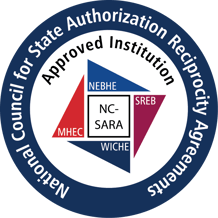 CHALLENGE
CHALLENGEOnline Programs
State Authorization Reciprocity Agreement (SARA)

What is SARA?
The State Authorization Reciprocity Agreement is an agreement among member states, districts and territories that establishes comparable national standards for interstate offering of postsecondary distance education courses and programs. It is intended to make it easier for students to take online courses offered by postsecondary institutions based in another state. SARA is overseen by a National Council and administered by four regional education compacts.
Who belongs to SARA?
The members of SARA are states, not institutions or students. Therefore a state “joins” or becomes a “member” of SARA while a college or university “operates under” or “participates in” SARA. States join SARA through their respective regional compact.
NOTE: The District of Columbia and U.S. Territories that are part of a regional compact are also eligible to join SARA.
Does SARA completely replace state authorization?
No. Any degree-granting institution in the U.S. must be authorized to issue degrees by a government. This is typically a state but it can also be Congress or an Indian tribe. SARA pertains to approval of distance education courses and programs offered across state lines by institutions that already have degree authorization in at least one state. What SARA does is centralize the authorization process for each institution in a single state called the institution’s “home state.” Colleges or universities in a SARA state therefore only need their home state authorization to offer distance education to any other SARA member state.
Is every state a member of SARA?
No, membership is voluntary. States may choose to join SARA through the regional compact to which they belong. NC-SARA will maintain a list of SARA member states and institutions operating under SARA.
When will SARA begin operation?
Membership was opened in January 2014. Application materials for states and institutions are available online from each of the regional compacts’ websites and at the National Council for SARA web site (nc-sara.org).






